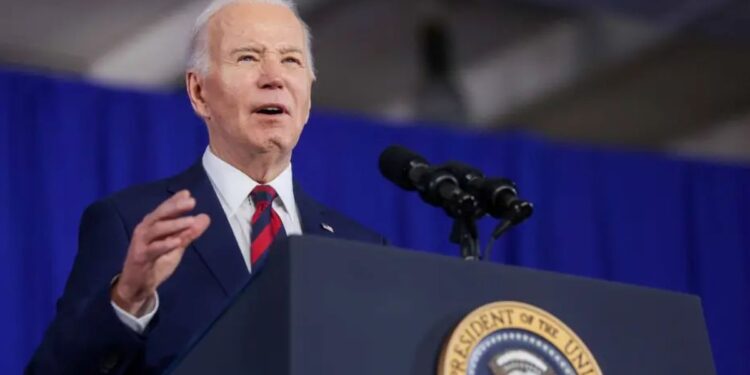Should President Biden secure re-election, he has pledged to allow significant sections of the Tax Cuts and Jobs Act to expire in the upcoming year, potentially resulting in increased tax bills for millions of Americans.
“Donald Trump was very proud of his $2 trillion tax cut that overwhelmingly benefited the wealthy and biggest corporations and exploded the federal debt,” Biden said in a tweet on Tuesday. The tax break is about to expire. Should I secure reelection, this tax break will continue to expire.
Former President Donald Trump signed the package in 2017, dramatically overhauling the nation’s tax structure, including lowering the top individual income tax band from 39.6% to 37% and virtually doubling the standard deduction.
However, those modifications to the individual part of the tax code are slated to expire in 2025, which means that many taxpayers, including those earning less than $400,000, will face higher taxes if the bill is not extended.
“If lawmakers allow full expiration, most Americans will see their personal tax bills rise and incentives to work and invest deteriorate,” said Erica York, senior economist and research director at the Tax Foundation.
In addition to cutting the highest tax bracket for rich Americans, the Trump-era legislation lifted the thresholds for numerous income tax brackets, reducing liability for many households.
Tax brackets for single individuals pre-TCJA:
Individual income tax brackets for 2024 are subject to existing tax legislation.
10%: Taxable income up to $9,525
15%: Taxable income over $9,525
25%: Taxable income over $38,700
28%: Taxable income over $93,700
33%: Taxable income over $195,450
35%: Taxable income over $424,950
39.6%: Taxable income over $426,700
Tax brackets for single individuals under TCJA:
The individual income tax brackets in 2024, under current tax law.
10%: Taxable income up to $11,600
12%: Taxable income over $11,600
22%: Taxable income over $47,150
24%: Taxable income over $100,525
32%: Taxable income over $191,950
35%: Taxable income over $243,725
37%: Taxable income over $609,350
The tax law’s expiration on December 31, 2025, will ultimately force many Americans to pay anywhere from 1% to 4% more in taxes unless certain provisions are extended or made permanent, according to the Tax Foundation.
The issue is likely to be a point of debate in the general election. Trump has promised to make the tax cuts permanent if he is reelected in November. According to Treasury Secretary Janet Yellen, extending the TCJA would add approximately $3.7 trillion to the federal budget deficit. However, Biden has previously stated that he intends to maintain tax cuts for Americans earning less than $400,000.
The original legislation was primarily funded by the so-called SALT deduction ceiling, which limits the amount of state and local taxes that Americans can deduct from their federal taxes to $10,000. That ceiling is likewise set to expire in 2025.
However, the SALT cap has lost some of its revenue-generating potential since 2017, thanks to new workarounds.
“Though lawmakers may not address the looming expirations this year, they should prepare for the upcoming expiration by weighing the trade-offs of each change the 2017 tax law made,” York said in a statement. “Lawmakers should cement into law a tax code that promotes growth and opportunity without worsening U.S. debt.”










